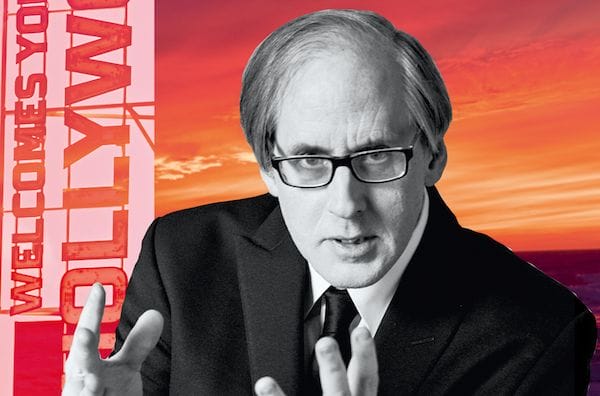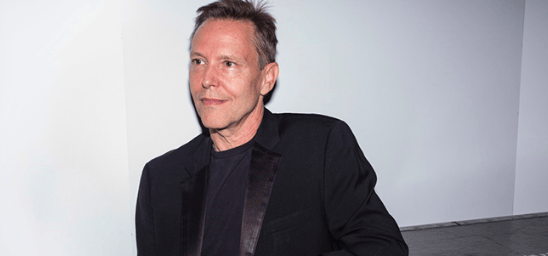When:
January 26, 7 PM
Where:
Walt Disney Concert Hall
111 S. Grand Ave.
Los Angeles, CA 90012
Sure, the character of Claire Underwood is likely seared in the memory banks of every feminist and many more. Yet, you too might agree that THE stand out among stand outs in the popular House of Cards political thriller series (American version) was the introductory score by composer Jeff Beal, who in just a few minutes captured all the intrigue, suspense and multi-dimensional plot turns of this series, distilling it into a powerful musical signature.
Seeing his name associated with an upcoming performance of the Los Angeles Master Chorale might have been the initial attention getter, but it’s just the beginning of why this concert two weeks before the next Academy Awards sounds so compelling, and especially for admirers of silent films.
Consider that Beal’s new score is for the film that won three awards at the very first Academy Awards ceremonies ever. Sunrise: A Song of Two Humans is the film, directed by a famous German Director F.W. Murnau, a romantic drama that broaches passions inside and outside of a marriage, fidelity and forgiveness. The soundtrack of the original silent film was actually a patchwork.
Here, Picture This Post (PTP) asks Jeff Beal (JB) about this project, a unique choral score, and how and why it came about.
(PTP) How did this project and your collaboration with Los Angeles Master Chorale transpire?
(JB) I had done a previous work for them, The Salvage Men, and started thinking about the possibility of a live to picture work. So much of my work scoring for film involves orchestras, and non-vocal music, and I thought the combination of a score driven by the human voice, with the right film, could be a unique project.
How and why did you choose Sunrise, as opposed to another silent film?
I watched a ton of movies, and started really getting excited when watching the German Expressionist ones. I knew about Sunrise, but hadn’t realized it had been made by a master in this medium, F.W. Murnau. When I watched it, it had all of the qualities which could sustain a vocal score approach— beautiful cinematography, a mythic and personal story, with emotional range between darkness and light.
How did the process of composing the score for Sunrise differ from the process of composing for modern day film and TV projects?
Well for one, the director wasn’t around anymore! I usually love the conversation I have a with a film-maker on the story, tone — how music can function as a story-telling device. In this case, I had to become a student of the film, study each shot, and through the process of writing, discover the layers of meaning that were there. I also enlisted my wife Joan as a collaborator. (She picked and set all of the poetry and text for the chorus to sing to the notes I was composing.) Joan was also really helpful as the male/female roles in the story deal with the way in which a couple relate, and in the case of this story, the way a woman may feel in the presence of potentially violent husband.
Are there different considerations when working with a choral ensemble as opposed to a full orchestra?
I think of the chorus as the original, pure musical medium. This must be the way humans first expressed themselves, i.e. in song and chant. I find it is often more powerful and direct in evoking a timeless, almost religious feeling. There is also a reason usually you can’t use too many vocal textures in a contemporary film with dialog—they are like catnip for the ears. For a silent film, with very little dialog, even in the form of titles on screen, it seemed like a natural fit.
How do live-to-picture events compare to the studio experience?
I come from a performance background as a jazz and classical trumpet player, and presently an occasional conductor— love the energy of these type of events. I recently did a concert of my score to The Biggest Little Farm at the Wiltern theatre here in L.A. That reminded me just how different a film feels when the music is performed live. Interestingly enough, in big cities like L.A. and N.Y., there was often a full orchestra employed providing the music for a silent film. So in a strange way, I feel as if we are re-discovering a part of our culture and shared history in a beautiful way.
Without giving too much away, do you have a favorite moment in the film that you enjoyed composing for the most?
The boat ride is a great scene, and I loved working on that. Also the scene by the moonlight with the woman from the city —so noirish, romantic, and strange.
Editor’s Note- Additional programming--
On Sun. Jan. 19 at 7:00 pm. the Master Chorale will host a panel discussion with Jeff and Joan Beal, Peter Golub, director of the Sundance Institute Film Music Program, and Janet Bergstrom, professor of cinema and media studies at the UCLA School of Theatre, Film, and Television, in Chorale Hall at Walt Disney Concert Hall.
Tickets:
$29+
For tickets call 213-972-7282, or visit the LA Master Chorale website.
Photos courtesy of Los Angeles Master Chorale




